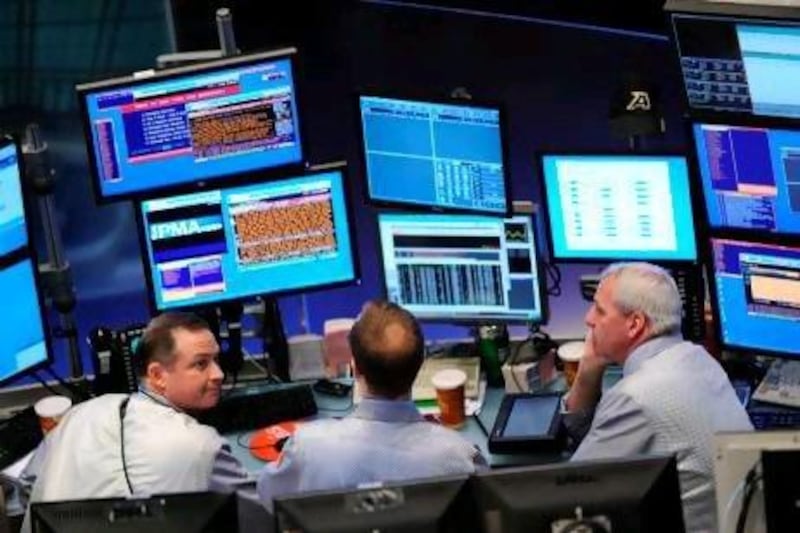Inadvertently buying the same stock more than once is a common mistake made by the average investor. Not only does it raise your exposure to risk, but if disaster strikes, you could lose it all - multiple times. Harvey Jones reports
When out shopping, you wouldn't normally buy the same thing twice. You wouldn't buy, say, two identical ties, three identical pairs of shoes, or four identical BMWs.
At least, most people wouldn't.
But that's exactly what investors do. They buy the same stock, fund or asset two, three or four times, in slightly different formats. Incredibly, most don't even realise they're doing it.
Buying exactly the same stock in several different ways is an easy mistake to make. You have almost certainly made it yourself, again and again.
Doubling up is a particular risk when investing in global blue chips such as Apple, ExxonMobil, General Motors, HSBC, Royal Dutch Shell, Toyota, Vodafone and Walmart, which pop up in all sorts of mutual funds and pension pots.
Take BP, the oil giant. You may have knowingly bought that stock direct. You may also hold it in a low-cost FTSE tracker or exchange-traded fund, a mutual fund investing in global blue chips and again, in a specialist global energy fund. Your pension may hold a chunk of BP as well.
If disaster strikes, as it struck BP in the Gulf of Mexico in 2010, your portfolio is in double, triple or even quadruple trouble.
Accidentally buying the same stock in a range of formats is a common investment mistake, says David Hughes, the senior area manager at PIC (Middle East), an independent financial advisory firm. "We see this regularly when we take on new clients."
It can make sound investment sense to top up a stock or fund you already hold, provided you know exactly what you are buying and why. "But unwittingly buying the same investment several times is simply bad portfolio management and can leave you overexposed to a single stock, fund or country. You can also rack up unnecessary trading charges," he says.
Before buying a fund, always find out which companies it invests in to avoid buying more of the same. "Most funds only list their top 10 holdings, so you may need to do a bit more research to find out what else is in there. This isn't so easy with pensions, where it can be difficult to find exactly what assets you are investing in," Mr Hughes says.
If you don't know where your funds are invested, you could find yourself overexposed to a failing sector. If, for instance, you were heavily invested in banks at the start of the financial crisis, or mining companies in the past 12 months, your portfolio would have taken a pummelling.
You also have to watch out for surprising correlations. If you hold a mining stock, such as BHP Billiton or Rio Tinto, and a China growth fund, you have double exposure to a single risk. If we get a China hard landing, those miners will also come crashing back to earth.
You might need to take advice from an independent financial adviser to make sure you are investing in the most efficient way, Mr Hughes says.
Doubling up is a particular danger right now, says Rob Pemberton, the investment director at HFC Columbus, a wealth-management firm in London. "Many investors, frustrated at slow stock market growth, are investing for income instead by targeting the stocks of mega-cap, high-dividend players such as pharmaceutical, oil or tobacco companies."
They are fishing in a small pool of blue chips, many of them clustered in the FTSE 100, such as GlaxoSmithKline and AstraZeneca, BP and Royal Dutch Shell, British American Tobacco and Imperial Tobacco. "Investors who mostly target the US or Europe make exactly the same mistake, buying virtually the same portfolio several times over," Mr Pemberton says.
Instead, look for a global equity income fund that spreads your risk among global dividend payers, balancing those FTSE big boys with foreign alternatives such as Roche and Bayer, Exxon and ConocoPhillips, and Reynolds American and Philip Morris International.
Mr Pemberton recommends the international funds Newton Global Income, Lazard Global Equity Income and M&G Global Dividend. "These should give you exposure to a wide variety of regions, sectors and stocks," he said.
Some duplication is inevitable, says James Thomas, the regional director at Acuma Wealth Management in Dubai. "Huge, well-established international companies generally produce consistent performance, which is how they got to be so big. They can also make up a huge percentage of any stock market index, making them hard to avoid."
Expats who remain sentimentally attached to their home stock market are in particular danger of doubling up. Happily, many have much broader global horizons. "Expat portfolios generally have a lot less home bias and are spread across much broader geographical areas," Mr Thomas says.
Start by taking a look at your own investments. If you have been buying the same assets again and again, or paying a fund or pension manager to invest in stocks you already hold, it is time to be more single-minded.
Otherwise, you could land yourself in double trouble. Or triple, quadruple or even quintuple trouble.






